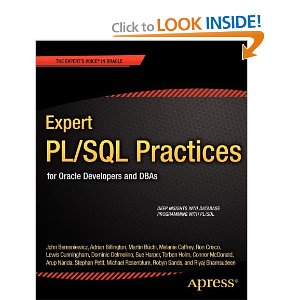To process the LIKE conditions, Oracle divides the pattern into subpatterns consisting of one or two characters each. The two-character subpatterns begin with the escape character and the other character is , or _, or the escape character. This Oracle tutorial explains how to use the Oracle LIKE condition (to perform pattern matching) with syntax, examples, and practice exercises. The Oracle LIKE condition allows wildcards to be used in the WHERE clause of a SELECT, INSERT, UPDATE, or DELETE statement.
The percent sign will be concatenated and then still interpreted as a meta-character in the LIKE condition. The escape _character, if specifie must be one character and it has no default value. The LIKE operator returns true if the expression matches the pattern. Otherwise, it returns false. The NOT operator, if specifie negates the result of the LIKE operator.
Let’s take some examples of using the Oracle LIKE operator to. And it is demonstrated in the original question above. I am trying to query a certain row by name in my sql database and it has an ampersand.
The ESCAPE keyword is used if you need to search for special characters like and _, which are normally wild cards. If you specify ESCAPE , SQL will search literally for the characters and _. The simplest method to escape single quotes in Oracle SQL is to use two single quotes. For example, if you wanted to show the value O’Reilly, you would use two quotes in the middle instead of one. The single quote is the escape character in Oracle SQL.
Special Characters in Queries. This chapter describes the special characters that can be used in Text queries. In addition, it provides a list of the words and characters that Oracle Text treats as reserved words and characters. Escape wildcard characters In Oracle SQL queries, the LIKE keyword allows for string searches.
These characters can be escaped in SQL. To use these characters so that Oracle can interpret them literally as a part of string value instead of preset mean, escape character has to be assigned. Oracle allows the assignment of special escape characters to the reserved characters in Oracle can be escaped to normal characters that is interpreted literally, by using ESCAPE keyword.
Certain characters such as the underscore ? For more information about the LIKE escape sequence, see LIKE Escape Sequence in Appendix C: SQL Grammar. For example, the following SQL statements create the same result set of customer names that start with the characters AAA. It is not in anyway related to the escape in the sqlplus like clause.

What you are seeing is sqlplus pre-processing your query. Wildcards are characters that help search data matching complex criteria. If you are familiar with using the SQL , you may think that you can search for any complex data using SELECT and WHERE clause.
The SQL LIKE condition allows you to use wildcards to perform pattern matching in a query. The LIKE condition is used in the WHERE clause of a SELECT, INSERT, UPDATE, or DELETE statement. The ESCAPE option specifies that the backslash character precedes any wildcard characters used with the LIKE operator. The underscore is then used in the text match. In this post, I am sharing few examples for the ESCAPE Square Brackets in LIKE Predicate of SQL Server.
We can use ESCAPE options for escaping such character from the string. Check the below examples, and try it yourself. We need to tell SQL that the underscore should be considered an underscore, not a wildcard.
A quick search on the DBLUW documentation turns up the answer, the ESCAPE expression on the LIKE clause where we can define the character we want to use to escape the wildcard. So if we decide to use the slash character in front of the underscore, the. Am using oracle sql for my project.
The following topics are covered in this chapter: Wildcard Characters.
No comments:
Post a Comment
Note: Only a member of this blog may post a comment.